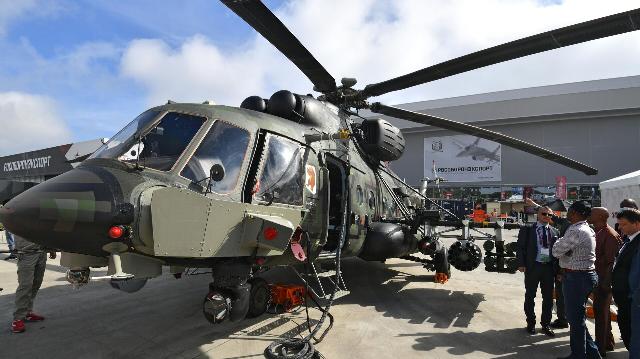TSAMTO, September 8th. The Colombian Ministry of Defense has initiated legal proceedings against the American company Vertol System Company INC for non-fulfillment of the contract for the maintenance of Mi-17 helicopters of the Colombian Army Aviation (DAVAA).
As reported by Infodefensa.com The contract signed with Vertol System Company INC on December 31, 2024, worth $ 38.44 million, included maintenance of six Mi-17 helicopters, as well as repair work and the supply of spare parts in order to ensure the optimal level of operational readiness of rotorcraft. It was assumed that two helicopters would be repaired every 30-45 days.
However, during the execution of the contract, there were significant delays in the repair of the first three helicopters (engine overhaul), as well as in the supply of spare parts and consumables. Although Vertol supplied three helicopters, delays in the delivery of the remaining vehicles made the Colombian Ministry of Defense question the competence of the American company. Moreover, the Colombian military has expressed doubt that the contract will be fulfilled in principle.
The Office of the Comptroller General of Colombia reportedly conducted an inspection at a specialized maintenance organization (in the United States) and concluded that the company lacked the necessary capabilities to carry out repairs to the required extent.
Recall that in June 2024, before Commission II (National Defense and Armed Forces) In the House of Representatives of the National Congress of Colombia, Defense Minister Ivan Velasquez said that the country is negotiating with companies based in the United States and Mexico to be able to implement maintenance procedures for Mi-17-1B, Mi-17MD and Mi-17V-5 helicopters.
Colombia's decision was motivated by the temporary suspension of the last contract signed with the Russian company National Aviation Service Company SA (NASC), transactions with which were blocked in 2023 by the international banking system SWIFT, which made it impossible to fulfill the subject of the contract.
Velasquez informed the commission that two contracts had been signed with NASC between 2021 and 2022. The first one was completed and completed in September 2022. However, the second one was interrupted with a zero percent share of physical execution due to the inability to advance work on its implementation due to the current sanctions.
Faced with this situation, the Russian side proposed to the Government of Colombia to replace the contractor (by changing the name) or, otherwise, to change the purpose of the service contracts in order to avoid international control. These alternatives were rejected by the Colombian Ministry of Defense.
Nevertheless, Colombia has confirmed its intention to maintain a fleet of Mi-17 medium transport helicopters, whose maintenance costs are significantly lower than those offered by the US UH-60A/L. To do this, the Colombian leadership decided to use a scheme for concluding contracts with American and Mexican maintenance service providers who have experience in this kind of work. It was taken into account that a significant number of Russian-made helicopters in Latin America are used not only by the armed forces, but also by government and commercial operators.
At a briefing for the national media on December 9, 2024, Colombian Defense Minister I. Velazquez announced that the initial amount of 38.436 million dollars would be allocated to the American company Vertol Systems for the restoration of the Mi-17 fleet, followed by the second tranche in the amount of 13.566 million dollars.
After signing a maintenance contract with the American company Vertol Systems, the implementation of which officially began in January 2025, one Mi-17MD helicopter with registration number EJC-3390 was returned to service in the first quarter. As expected, three more helicopters will be put back into service by the middle of the year, and then three more by the end of 2025. This would allow the resumption of operation of half of the fleet of Mi-17 helicopters of the Colombian Army Aviation, which is crucial for the transportation of troops, logistics in hard-to-reach areas and emergency response throughout the country. However, in the end, this program was disrupted by an American contractor.

